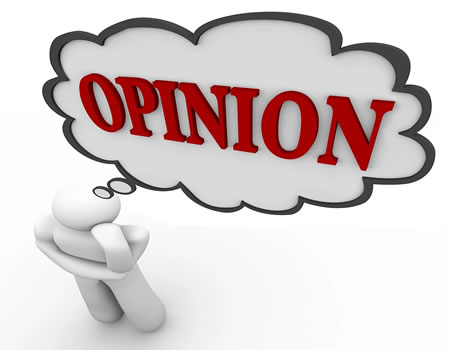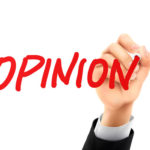RELIGION is a popular term that has been given different definitions by scholars in different fields of human endeavour. It is an important feature of human history that cannot ordinarily be under played. A scholar, T.I. Okereke, submitted that religion is a link between man and God. In his view, it is the sum total of man’s relationship with God and the transcendent. In the same vein, there is an interaction between religion and the society within which it functions. Religion performs a variety of functions. The first is on the individual as its affects social behavior. The second is that religion interacts and influences the other facets or social institutions in the society, namely, polity and economy. These institutions also influence the religious institutions, the effect of which affect in a fundamental way, a people’s way of life. Hence, in the book, African Religions and Philosophy, it is noted that in African traditional life, the individual is immersed in religious participation that starts before birth and continues after death.
It is also emphasised that religion is indeed fundamental for Africans, since human beings live in a religious universe. Both the universe, and practically all human activities in it, are seen and experienced from a religious perspective. This means that the whole of existence is a religious phenomenon. In the African worldview, to exist is to be religious in a religious universe. In this sense, it is unthinkable for an African to live without religion. This religious worldview informs the philosophical understanding of African myths, customs, traditions, beliefs, morals, actions and social relationship. This same worldview also accounts for the religiosity of the African in political and socio-economic life. Scholars also agree that Africans resort to religion unconsciously, which shows how deeply a religious consciousness is ingrained in an African person, whether he or she is at home or in the diaspora. It is, therefore, common for Africans to display their religious beliefs and rituals in moments of joy and despair.
Yes, today, Africans are notoriously and aggressively religious. Mbiti, a scholar, says that religion permeates all departments of life to such an extent that it is not easy or possible to isolate it. Although the African religious consciousness was initially derived from the practice of traditional religion, Christianity and Islam have given further impetus to this consciousness. Conversely, however, as the unfolding of a natural cultural process, both Christianity and Islam have in turn been influenced by traditional religion. Today, I need no BBC News Africa to establish the already established fact that religious practice is so endemic in Nigeria to the extent that scholars have clad Nigerians as the most religious people in the world. True, Nigeria is a state where Islam, Christianity and traditional African religions are freely practised. Islam and Christianity are sometimes depicted as monolithic entities that confront each other in pitched battles. The Human Rights Watch says that the religious “height” of Nigerians notwithstanding, the nation equally “stands tall” among corrupt nations of the world. Not only is the giant of Africa unable to check the moral decadence of its citizens, the practice of religions, particularly the imported ones, has been responsible for repeated conflicts that have claimed the lives of millions of citizens and destruction of properties worth billions of naira mostly in the North.
It is interesting to note that these two religious bodies are always competing with each other for religious space. Unfortunately, the political class does not hesitate to use them to gain both political and economic advantages. It is evident that the wrong use of religion has resulted in the destruction of lives and property. During violent religious conflicts, many people have been killed, maimed and wounded. There have also been wide spread disruptions of economic activities with negative effects on productivity. Thousands of churches and mosques, homes and other related abodes have been destroyed. In fact, violent religious conflicts create an atmosphere of national insecurity and uncertainty which are inimical to economic growth and development. The struggle for power and positions has also led to the manipulation of religion and ethnicity by the political elite for selfish reasons, as observed in the various political appointments of the present government of Muhammadu Buhari. This causes distrust, discrimination and a sense of general insecurity. Religious conflicts has done more harm than favour to Nigerians, who seem to love their God more than themselves.
Adherents of various religion fight for their God. The Constitution of the Federal Republic of Nigeria 1999 as amended (Chapter 1 Section 10) states that “the government of the Federation or a State shall not adopt any religion as a state religion”. Furthermore, Section 38 (1) states that: Every person shall be entitled to freedom of thought, conscience and religion, including freedom to change his religion or belief and freedom (either alone or in community with others, and in public or private) to manifest and propagate his religion or belief in worship, teaching, practice and observance. Why have inter and intra religious conflicts become one of the defining characteristics of Nigeria, particularly the Northern part, in the past three to four decades? Why will one religion want to claim superiority over one another? Why will one religion claim it way is the best channel to God? Why will one religion force its way of life over another religion?
- Ogungbile writes in via thedreamchaser65@gmail.com
YOU SHOULD NOT MISS THESE HEADLINES FROM NIGERIAN TRIBUNE
We Have Not Had Water Supply In Months ― Abeokuta Residents
In spite of the huge investment in the water sector by the government and international organisations, water scarcity has grown to become a perennial nightmare for residents of Abeokuta, the Ogun State capital. This report x-rays the lives and experiences of residents in getting clean, potable and affordable water amidst the surge of COVID-19 cases in the state…
Selfies, video calls and Chinese documentaries: The things you’ll meet onboard Lagos-Ibadan train
The Lagos-Ibadan railway was inaugurated recently for a full paid operation by the Nigerian Railway Corporation after about a year of free test-run. Our reporter joined the train to and fro Lagos from Ibadan and tells his experience in this report…
[ICYMI] Lekki Shootings: Why We Lied About Our Presence — General Taiwo
The Lagos State Judicial Panel of Inquiry probing the killings at Lekki Toll Gate, on Saturday resumed viewing of the 24hrs footage of the October 20, 2020 shooting of #EndSARS protesters by personnel of the Nigerian Army…
ICYMI: How We Carried Out The 1993 Nigerian Airways Hijack —Ogunderu
On Monday, October 25, 1993, in the heat of June 12 annulment agitations, four Nigerian youngsters, Richard Ajibola Ogunderu, Kabir Adenuga, Benneth Oluwadaisi and Kenny Razak-Lawal, did the unthinkable! They hijacked an Abuja-bound aircraft, the Nigerian Airways airbus A310, and diverted it to Niger Republic. How did they so it? Excerpts…
Sahabi Danladi Mahuta, a community mobiliser and APC chieftain. Mahuta spoke to select journalists at the sidelines of an Islamic conference in Abuja recently. Excerpts…
WATCH TOP VIDEOS FROM NIGERIAN TRIBUNE TV
- Let’s Talk About SELF-AWARENESS
- Is Your Confidence Mistaken for Pride? Let’s talk about it
- Is Etiquette About Perfection…Or Just Not Being Rude?
- Top Psychologist Reveal 3 Signs You’re Struggling With Imposter Syndrome
- Do You Pick Up Work-Related Calls at Midnight or Never? Let’s Talk About Boundaries







